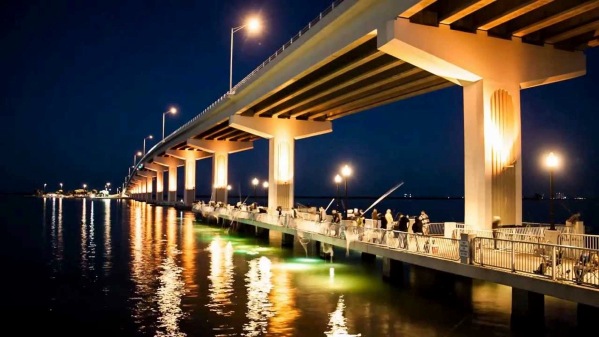
Like I said in a previous post, if John 6 is a chapter about Jesus making it clear just who he is, then John 7 is a chapter which challenges readers and listeners to start making their mind up about who Jesus is. This section absolutely continues that theme.
What seems clear in John 7 is that the people listening to Jesus knew that they had a decision to make about him. He was clearly making claims about his identity and mission which made the crowds and the authorities sit up and listen, and now the job of those listening was to measure up the things Jesus was saying with the things that they already knew from their religious tradition. The crowds begin to wonder how it is that Jesus can say the things he is saying and not evoke any response from the religious leaders. Naturally the crowd begins to conclude that the leaders have maybe decided that what Jesus is saying is true; that Jesus is the Messiah – but that just doesn’t add up to what they already know. They know, according to their tradition, that when the Messiah comes no one will know where he has come from – but they know where Jesus is from. He is a Galilean! Later on at the end of the passage, it appears that not knowing where the he has come from is not actually a factor in identifying the Messiah because other crowd members are saying that the Messiah will come from the town of David (Bethlehem). Jesus is a Galilean! There is no way he can be the Messiah, right?
In the middle of all this Jesus cries out saying that the crowd clearly know who he is and where he is from (although they seem to have no idea where he was born) but these things are not actually anything to do with his identity as the Messiah. The Messianic identity comes from the fact that he is not doing what he is doing or saying what he is saying on his own authority, but the authority of the One who has sent him. According to Jesus, the problem is not that they do not know him, the problem is that they do not appear to know the One who sent him. They do not know God. Of course this statement infuriates them – no one like to have their faith and belief called into question – and they try to seize Jesus. They can’t get a hand on him because his time has not yet come. Here again John is slipping in another sign for his early readers who might be hearing the story anew for the very first time. The Jewish leaders cannot get a hand on him now because it is not his time – this statement implies that his time will come though. John is saying to his readers that they need to stick with the story because Jesus’s time will come!
Jesus makes the statement to the crowd that he is not going to be around forever and that he has another place to go – a place where they cannot go. When he says this they wonder what it is he is talking about – “Where can he go that we cannot go? Is he going to where the Jews are living among the Greeks?
This passage illustrates one of the biggest obstacles that exists in choosing to follow Christ: Mystery. We do not deal well with mystery and with things that we do not fully understand. This truth can be seen all the way through this text:
Is he the Messiah? Fact Check – No one will know where the Messiah is from, but we know this dude is from Galilee. He is not the Messiah.
Is he the Messiah? Fact Check – The Messiah will come from the town of Bethlehem, but we know this guy is from Galilee. He is not the Messiah.
He says he is going to a place that we cannot go to? Where might this be? Maybe he is going to our people among the Greeks.
At every question mark in this passage, the Jews have to have an answer and if Jesus’ story does not stand well in their established narrative then it is very simple – he’s not the Messiah, he’s a very naughty boy! (Couldn’t resist!) The same applies to most humans I know in the 21st century world too. If we do not have a clearly cut answer to our questions, one which stands well in our established narrative, then we are not satisfied.
But Jesus does not come to merely tick the boxes of our established traditions and narratives.
Jesus comes to establish anew the work of God for all people.
Jesus comes so that all people – ALL PEOPLE – may receive the grace, love and mercy of God.
Jesus comes so that anyone – ANYONE – who is thirsty may come to him and drink.
Jesus comes so that ANYONE can believe in him and see rivers of living water flow forth from their lives.
The problem, it seems, is that humans want Jesus to fit into their neatly squared off boxes, which is preposterous – I mean how can light illuminate the darkness if it is contained and stuck inside a box?
John 7 demands that we begin to allow Jesus to obliterate the narratives and traditions that we have allowed, figuratively speaking, to keep us bound up in chains. For Jesus to do what Jesus has come to do his listeners must allow their pre-established notions to be called into question so that they can freely follow him and walk in his way.







